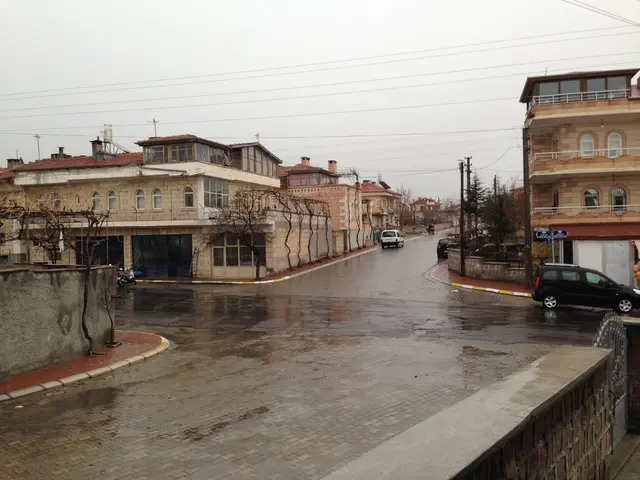Young Mexican voters' preferences and expectations
In the heart of Mexico City, renowned journalist and author León Krauze penned a thought-provoking column for El Universal, shedding light on the upcoming elections and their far-reaching consequences.
These elections, Krauze argues, will shape not only Mexico's political, cultural, economic, and social landscape but could also determine the course of the planet for the remainder of the century. The stakes are high, and the author expresses concern that young Mexicans may have forgotten the lessons of the past, particularly the era of the PRI, the hegemonic party that plunged Mexico into a "perfect dictatorship."
Across the Atlantic, a similar trend is emerging. The appeal of modern tinsel, coupled with the stridency of radical politics, such as nationalisms rabidly opposed to migration, is finding a dangerous echo in Portugal and other parts of Europe. Young Europeans generally view democracy positively—71 percent consider it the best form of government—but less than half trust that it actually works well in practice, and political interest is high, though polarization is increasing.
A recent report in the Washington Post suggests that young people in Europe, particularly in Portugal, have forgotten the lessons of history. The far-right "Chega" party, known for its anti-immigrant stance and restrictions on rights such as abortion, has seen an increase in support among voters aged 18 to 34.
Meanwhile, in Mexico, the elections will test the solidity of electoral institutions and democratic practices. Misinformation and manipulation are being used as electoral tools, and there are concerns about the potential threat to democracy posed by populist decisions, such as the one made by President AMLO to modify the INE (Independent National Electoral Commission). The author does not explicitly state what this decision entails, but it is implied to be a cause for concern.
The voter born in the year of the alternation, marking the shift from PRI rule in 2000, is 24 years old today. Yet, many in Mexico are unaware of this history, and young Mexicans' political apathy towards democracy is a significant concern.
In the global arena, the most important election year in modern world history is happening in more than 50 countries, including Mexico and the United States. AMLO's trip to Washington could potentially strengthen Trump during the electoral year, but the article does not provide specific details about this.
However, AMLO finds it shameful that the United States finances anti-corruption groups in Mexico. Young Europeans, on the other hand, seem to want the restoration of past repressions, according to Krauze's observations. Young Portuguese, for instance, do not seem to know (or remember) life during the long dictatorship that ended in 1974.
The upcoming Mexican elections promise to be a defining moment not just for Mexico but for the world. As the dust settles, we will see if the lessons of history have been heeded or forgotten.





